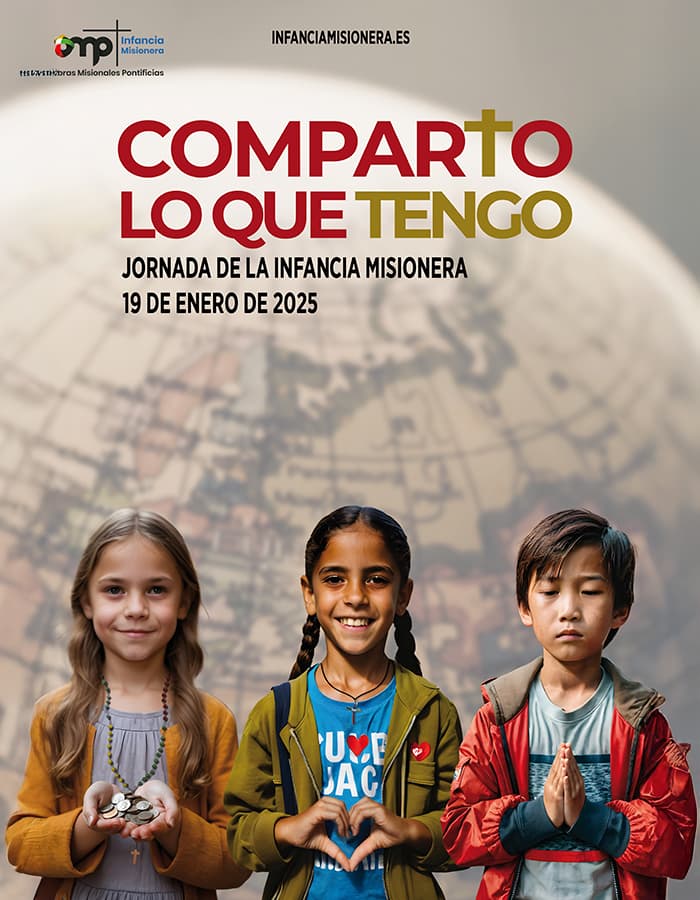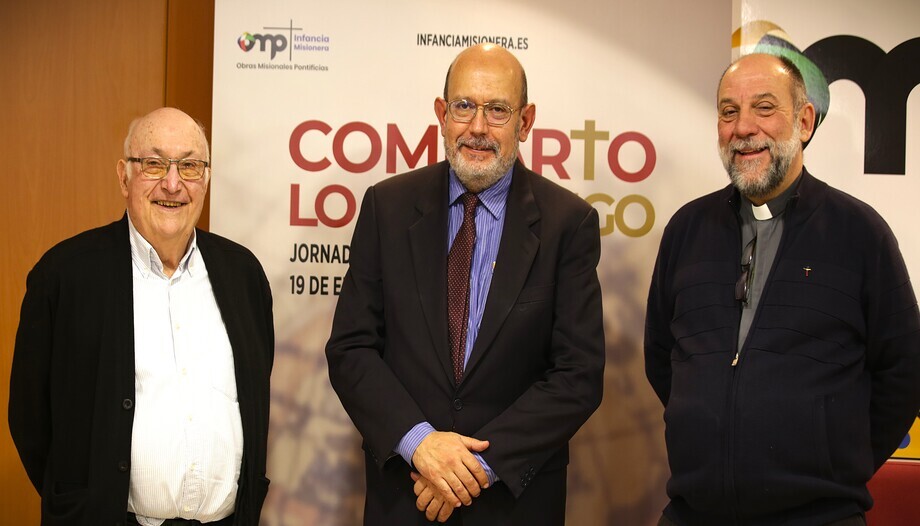Listening to the enthusiasm of Peruvian Enrique H. Davelouis, who for 30 years has been working at the International Secretariat for Missionary Childhood in Rome, or that of parish priest Julio Feliu, missionary in Africa for the White Parentswith more than 53 years in Malawi, is a blessing. Working on projects to help children sponge the soul.
You don't want to complain, because Malawi, for example, is the third country in the world in the hunger ranking," explains Father Feliu. And for the children, the plate of rice with meat and cabbage with which they celebrate their First Communion is the meal of the century. "But not because of the quality, but because of the quantity."
Malawi, third in hunger ranking
In multi-religious Malawi, with an overflowing birth rate (1.5 million people in 1967, when I arrived, says Julio Feliú, and 19 million now), going hungry is normal. But the archdiocese of Lilongwe, where he worked, receives annual aid from Infancia Misionera for evangelization, education and health care projects in children's hospitals, which try to alleviate the needs.
In addition, the white fathers have taught the children there to "be missionaries themselves" by receiving support from the Pontifical Work of Missionary Childhood to publish a catechism for children in Chichewa, a local language, which he did himself.
And there they were, introduced by José María Calderón, national director of OMP SpainThe Lima-born Davelouis, who told of two or three projects (there was not enough time for more) of the 2,700 initiatives in education, health, protection of life and evangelization promoted by the Holy See, and Father Feliu, editor of catechisms, explained that "children must be educated at the right age, in stages", and that in Malawi "everything depends on corn".

Spain, leader in generosity
The director of the Pontifical Mission Societies (PMS), José María Calderónrecalled that the Missionary Childhood Day is celebrated in Spain this Sunday, January 19, and this year promotes reciprocal collaboration among the children of the world, with the founding motto "Children helping children". The little ones become accomplices of the missionaries with their prayers and donations.
Thanks to their collaboration, and that of many adults, the Holy See helps finance children's projects that the missionaries develop in the mission territories, said Calderón. A total of 2,700 projects are supported each year, benefiting more than four and a half million children. In 2024, Spain ranked first in the list of countries that contribute the most to the Universal Solidarity Fund for Missionary Children.
Of the 16 million dollars raised in all countries, which the Fund makes available to the Pope for distribution in the 1,127 mission territories, the amount sent by OMP Spain in 2024 was 2.6 million euros, benefiting 36 countries in 470 projects and more than 700,000 children served.
"I share what I have."
"I share who I am." was last year's motto. "I share what I have." is the motto for Missionary Childhood Day this Sunday, January 19, 2025. A very important day, emphasizes Pontifical Mission Societies, "in which we children are invited to help other children, especially those who do not have what they need to live or do not know God. We are missionaries, and we are going to help them with our prayers and our money," they point out.
The Pontifical Mission Societies (PMS) are the Catholic Church's main instrument for meeting the great needs that missionaries encounter in their work of evangelization throughout the world.








